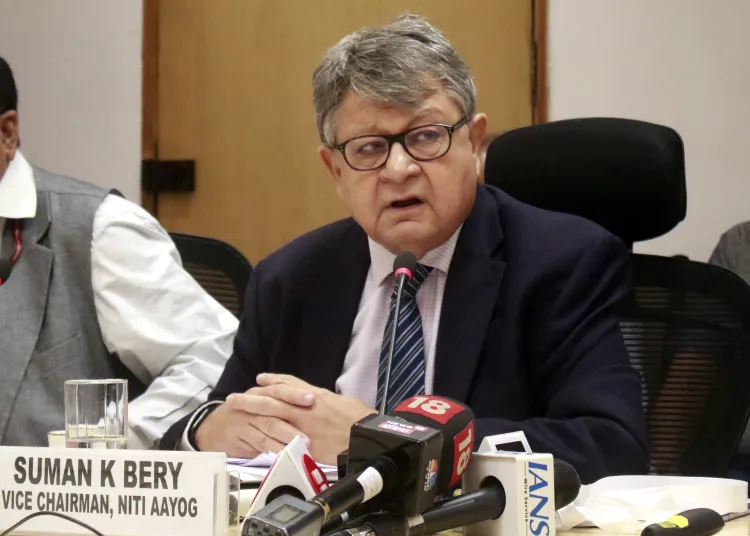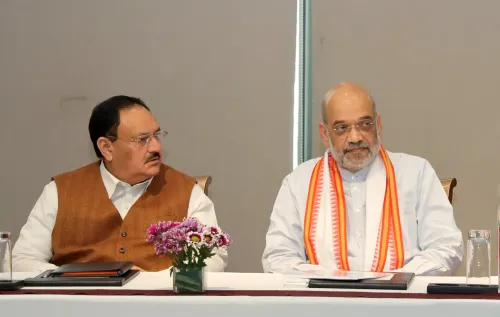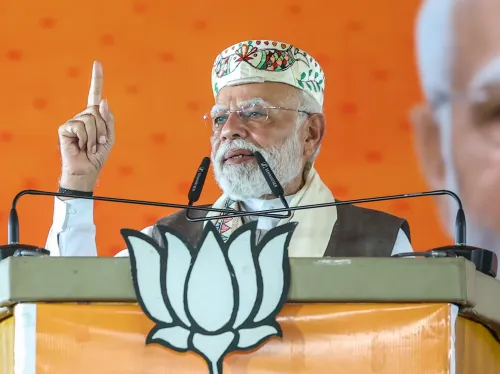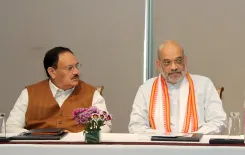How is NITI Aayog Transforming Medium Enterprises with a New 6-Point Road Map?

Synopsis
Key Takeaways
- Medium enterprises represent only 0.3% of MSMEs but account for 40% of exports.
- The report identifies key challenges like financial constraints and lack of technology.
- It proposes a six-point plan for financial support and R&D enhancements.
- The initiative aims to align skills development with actual enterprise needs.
- Unlocking the potential of these enterprises is crucial for economic growth.
New Delhi, May 26 (NationPress) On Monday, the NITI Aayog unveiled a significant report detailing a comprehensive six-point road map aimed at revolutionizing India’s medium enterprises, positioning them as critical growth engines for the economy.
The report reveals that medium enterprises represent only 0.3 percent of the nation's MSMEs yet contribute an impressive 40 percent of the sector’s total exports. It proposes targeted interventions to unleash their full potential.
It also addresses the structural imbalance in the MSME sector, which is responsible for approximately 29 percent of India's GDP, accounts for 40 percent of exports, and provides jobs for over 60 percent of the workforce.
Despite their importance, the sector is skewed, with 97 percent of registered MSMEs classified as micro, 2.7 percent as small, and a mere 0.3 percent as medium enterprises, according to the report.
The document highlights several significant challenges faced by medium enterprises, such as restricted access to customized financial products, minimal adoption of advanced technologies, insufficient R&D support, lack of sector-specific testing infrastructure, and a gap between training programs and the actual needs of enterprises. These obstacles impede their capacity to grow and innovate.
To tackle these challenges, the report outlines a detailed policy framework with targeted interventions across six priority areas. These include the launch of a working capital financing scheme linked to enterprise turnover; a Rs 5 crore credit card facility at market rates; and accelerated fund disbursal mechanisms via retail banks, under the supervision of the Ministry of MSME.
It also calls for upgrading existing Technology Centres into regionally-customized India SME 4.0 Competence Centres to facilitate the adoption of Industry 4.0 technologies.
Additionally, a dedicated R&D cell within the Ministry of MSME is proposed, aiming to leverage the Self-Reliant India Fund for cluster-based projects of national significance.
The report advocates for the creation of sector-focused testing and certification facilities to streamline compliance and improve product quality.
Moreover, it stresses the importance of aligning skilling programs with the specific needs of enterprises, both regionally and sectorally, integrating medium enterprise-oriented modules into existing Entrepreneurship and Skill Development Programs (ESDP).
Lastly, a dedicated sub-portal on the Udyam platform featuring scheme discovery tools, compliance support, and AI-driven assistance is recommended to help enterprises better navigate available resources.
The report emphasizes that realizing the potential of medium enterprises necessitates a shift towards inclusive policy design and collaborative governance. With strategic support in finance, technology, infrastructure, skills development, and information access, medium enterprises can become pivotal in driving innovation, employment, and export growth. This transformation is essential to achieving the vision of 'Viksit Bharat @2047'.
Launched by Suman Bery, Vice Chairman of NITI Aayog, the report titled ‘Designing a Policy for Medium Enterprises’ was presented in the presence of V.K. Saraswat and Arvind Virmani, both Members of NITI Aayog.









